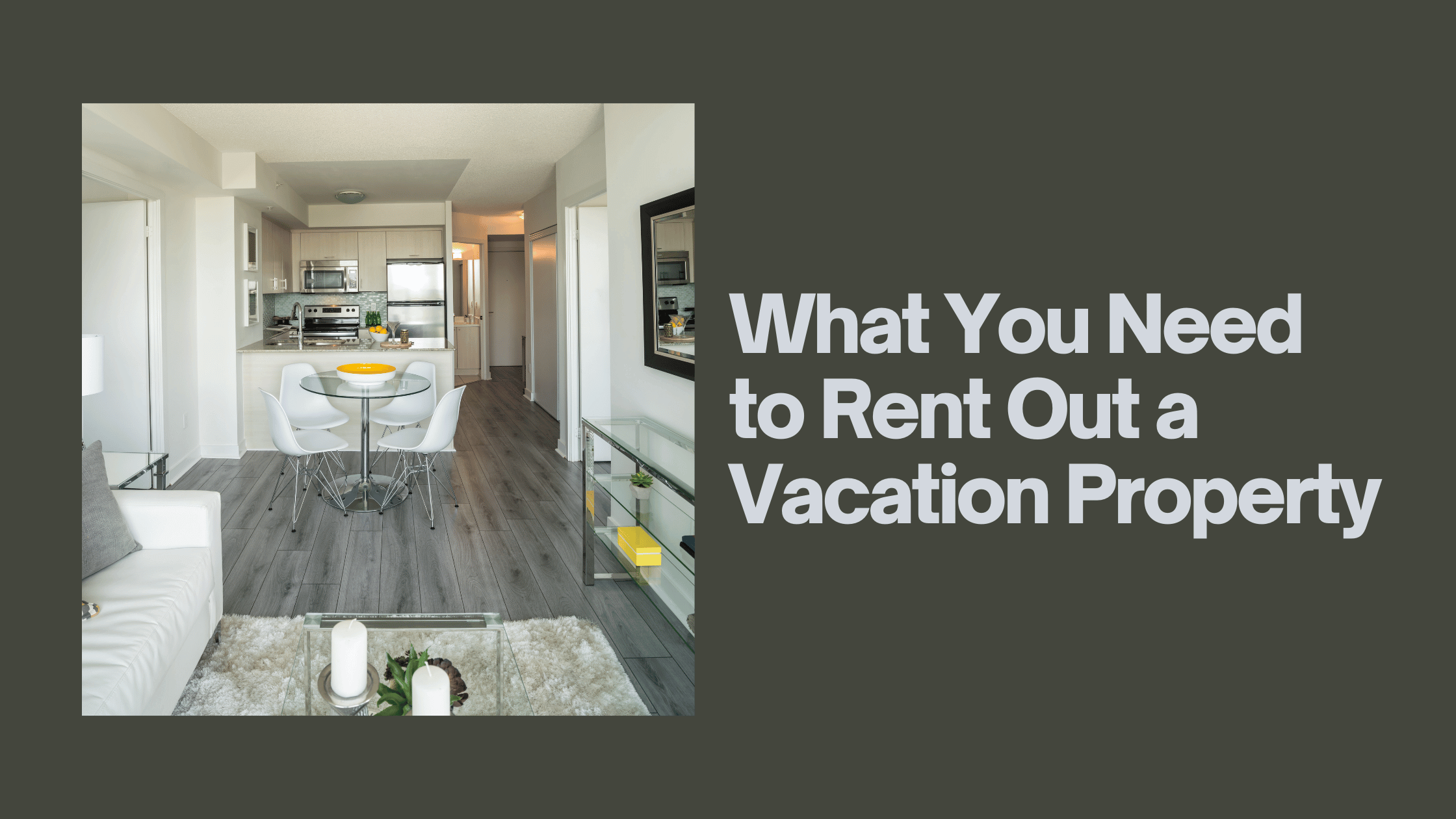Complete guide to vacation rental requirements including permits, insurance, contracts, and platform setup for property owners.
The following is a guest post from my bloggy friend Taylor McKnight. Interested in having a guest post on my website? Click here for my guest post submission form.
Vacation Rental Success: Essential Requirements for Property Owners
What are the requirements to rent out a vacation property? What do you need before you can even think about renting it out? This blog post will cover all of that and more!
What are Vacation Rental Properties?
Vacation rental properties are homes, condos, or apartments that people can rent for short periods. They are often rented through online services like Airbnb and VRBO.
You’ll need to provide some information about yourself before you can list a property on these platforms. You must have an account with them to use their service, which means you need a credit card or PayPal account. You also might be required to pay an initial fee when signing up for the website’s service, too – it costs $25 with Airbnb but is free with VRBO.
After providing your personal information, you’ll need to detail the home itself – how many bedrooms it has, what amenities are included, what kind of neighborhood it is in, etc. That information will populate the listing page on your chosen website so that renters can find out everything they need to know before contacting you about renting it.
Documents Needed For Vacation Rentals
You must have an occupancy permit to rent a property legally because not all areas allow for vacation rentals.
You’ll also need to provide proof of insurance for the property in case something happens while it’s rented out (a fire, a flood, etc.).
You’ll also want to make sure you have liability insurance. If someone is injured on your property while they are renting it, they could sue you, and your insurance must cover the cost.
You’ll also need a contract that can be used for all renters since some places have different rules about what kind of contracts are legal or valid in their area.
Other Things to Consider Before Renting Out Your Vacation Property
Some other essential things to think about ahead of time include:
-Having someone you can trust to manage the property for you while you’re away.
-Making sure your home is clean and in good condition before renters arrive.
-Having all of the necessary supplies on hand (sheets, towels, toiletries, etc.).
-Charging a cleaning fee to renters so that they know it will be clean when they arrive.
-Making sure you have a way to take payments from renters (PayPal, Venmo, etc.).
Pros and Cons to Renting Out Your Vacation Property
There are both pros and cons to renting out your home while you’re not using it.
Pros
-You can make some extra money.
-You might meet interesting people from other parts of the world (and you could even become pen pals).
Cons
-Your home will be occupied while you’re away, and you won’t get to enjoy it yourself.
-There is much more work involved than just posting an ad on Airbnb and waiting for people to contact you.
-You need to be comfortable with strangers staying in your home.
Types of Vacation Rental Properties
Here are a few examples:
-A house or condo on the beach.
-A cabin in the woods.
-An apartment in a city.
-A boat.
Some other Things to Consider Before Renting Out Your Vacation Property
Walk – Through
As a renter and rentee you both will want to make sure and do a walk through of the property. In this case, as a renter before you post the rental space to the public you will want to document all areas of the property in their current and upstanding condition. If there are blemishes or issues you will want to make sure and resolve them before a renter dare books from you. This could lead to many issues including a lawsuit if it got bad enough. Some minor things to think about for a home is appliance functionality, sealants for small holes or gaps, and how the exterior status is as well.
If you’re a rentee looking for a rental property, it’s vital that the house or condo is in good condition and everything works properly (the appliances, plumbing fixtures, etc.). You will most likely want to conduct a walk through of the property for this as well and record any malfunctioning appliances, along with if there are any blemishes existing within the interior or exterior that were not mentioned or pictured beforehand. If they are smaller issues that you believe you can solve yourself such as like nail holes in a wall that you could cover with sealant you could attempt however definitely contact the renter prior to doing anything.
You’ll need to provide renters with information about how they can contact you during their stay, plus where they can find the wifi password. You will also want to make sure and give a list of things you see upon entry that may be out of the normal, especially if you see mistakes or malfunctioning items as mentioned above.
You’ll also need to provide your renters with information about how to get into the property and any other rules that might apply (no loud music after midnight, no parties on the property). This could result in very bad times if you have neighbors or are apart of a culdesac.
Renters will expect clean sheets, towels, toiletries in each bathroom, and a clean home overall. You may also consider having a cleaning service come before your renters arrive to make sure it’s in good condition when they get there. It would be best to think about whether you want to charge a cleaning fee to your renters or if you just know that you will also need a cleaner after different renters flow in and out. This will help cover the cost of having someone come and clean the property before/after they leave.
You’ll also need to have a way for renters to pay you. PayPal, Venmo, and other online payment services are a great way to do this. You could also ask for cash or a check when they arrive. This will also be beneficial if you have a payment option on file in case of any damages done to the property while a renter is staying.
Putting all of this together can seem like a lot of work, but it’s worth it if you want to make some extra money while you’re not using your vacation property!
Bottom Line
As you can see, many things go into renting out your vacation property. You’ll need to think about what kind of property you want to rent out, where it is located, who will manage the home while you’re gone, how renters will pay for their stay, and any other important information they might need.
Written by Taylor McKnight, Author for Uni-Grip Inc.






